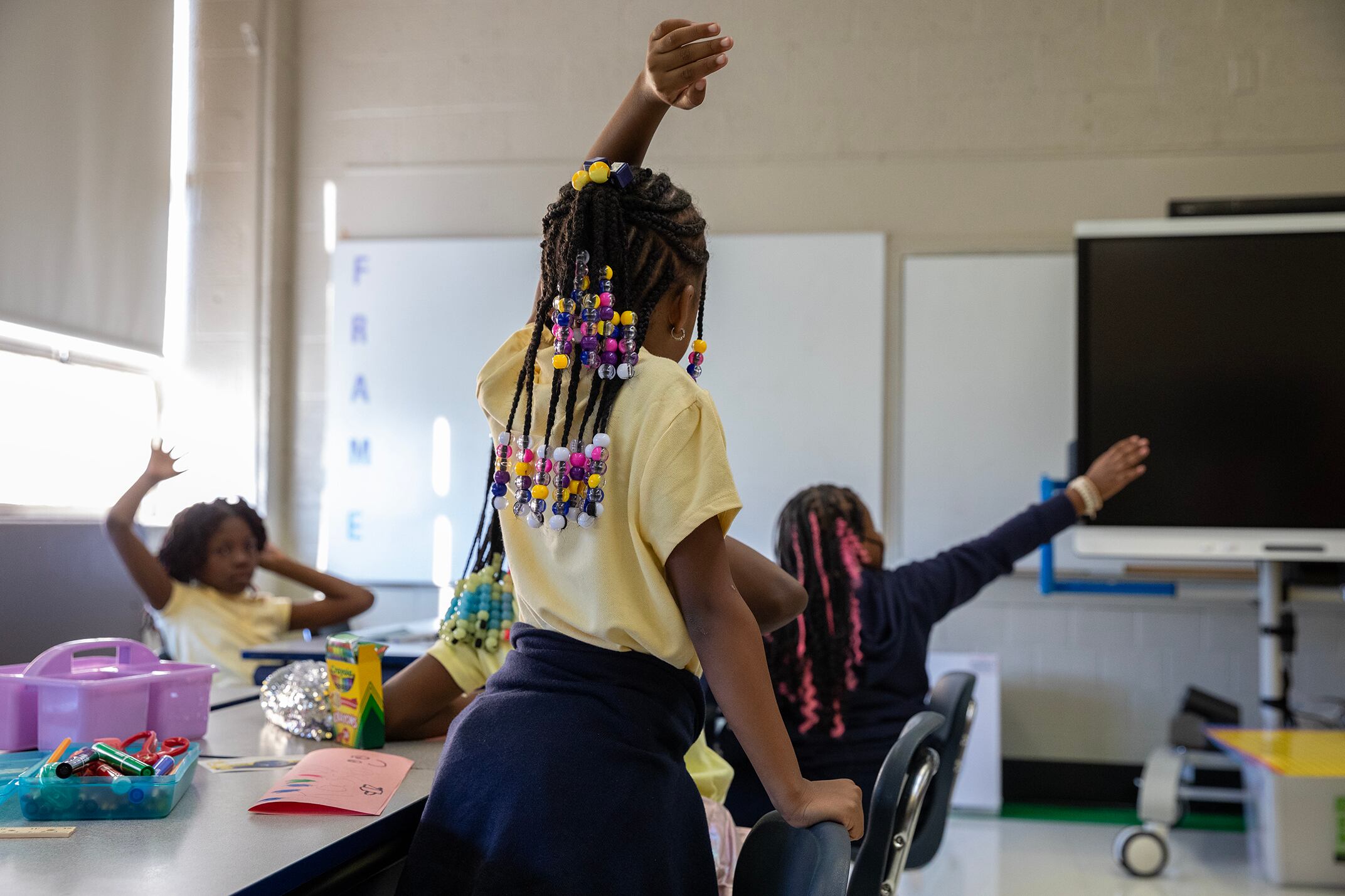Sign up for Chalkbeat Detroit’s free daily newsletter to keep up with the city’s public school system and Michigan education policy.
As classes are set to begin for many Michigan students next week, administrators are starting the school year with funding uncertainty and a number of new requirements they must meet.
The state’s education budget didn’t amount to what school leaders expected, with no increase to minimum per-pupil spending and a big cut to funding for student mental health and school safety programs. Advocates are pushing for the legislature to pass a supplemental budget to make up for those losses, but with school starting, administrators must revise their own local budgets to fill any gaps.
“There has been a lot of movement amongst superintendents and school boards to shuffle things around to do everything they can to open with personnel and services in place so students are getting everything they need,” said Bob McCann, executive director of the K-12 Alliance of Michigan. “That’s a challenge when budgets don’t necessarily meet expectations.”
Additionally, new mandates are taking effect this school year.
Some of the new initiatives, such as reforms to teacher evaluations, were supported by educators and advocates who say they will be a net positive for schools.
Other ongoing issues that are out of the control of local school leaders, such as a growing population of migrant and refugee children, a federal civil rights case involving the Michigan Department of Education, Title IX court battles, and the proliferation of artificial intelligence, will also have an impact on how schools operate.
School board elections set to take place this November across Michigan will also affect local schools’ policies.
“Our hope is always that partisan politics get left out of these things,” said McCann. “It doesn’t serve schools or students. We’ll have to see how some of that turns out this year.”
What’s new this year in Michigan public schools?
- Teacher evaluations will no longer be required to heavily rely on student scores on standardized tests during the 2024-25 school year. A bill passed last year took away the requirement that 40% of a teacher’s performance be based on student achievement scores. Now, 20% will be based on student performance and assessment data or other student learning objectives determined through collective bargaining agreements with teachers unions.
- This school year, changes to the Read by Grade Three law will be fully implemented. The controversial law required students who test more than a grade level behind to be held back in the third grade. The retention portion of the law was repealed in 2023 and went into effect in February. The parts of the law that remain include supports for students struggling to read such as progress monitoring and individualized reading improvement plans as well as standards for literacy coaches. Under the new provisions in the law starting in 2024-25, kindergarteners will be given a reading assessment within the first 90 days of the school year and within the first 30 days for kids in grades one through three.
- For the first time, Michigan public school districts, charter schools, and intermediate school districts will be required to give students in sixth through 12th grade age-appropriate material that explains what constitutes sexual assault and harassment. The material will also have to include explanations of what consent is and let students know that sexual violence is never the victim’s fault.
- Students starting their freshman year will be the first in the state required to complete a half credit of personal finance education as a graduation requirement. The requirement can be fulfilled in a personal finance class or in another course that adds the new standards, such as economics, a career and technical education program, or math.
- Starting this school year, the state will begin collecting more accurate data on indigenous and Native American students. Districts will be required to collect data on how many students have tribal affiliation. Before this year, the state only allowed tribal-affiliated students to mark “American Indian or Alaskan Native” or “two or more races” when identifying their ethnicity. Because of this limitation, advocates say the estimate of how many native students attend Michigan schools is likely severely undercounted, which creates skewed data on attendance, graduation rates, and more.
- School districts will no longer have to punish employees for referring students to abortion services this school year. A law that prohibited public school educators from assisting students in obtaining abortions and threatened districts with losing 1% of state funding for not complying was repealed last year.
- Starting this school year, kids will have to get a dental assessment within six months of enrolling in school for the first time. A law that created the requirement was passed last year in an effort to improve children’s dental health in the state. Students can be screened at private dental offices, through local health departments, or at pre-enrollment school events.
- More school-based health centers will be opening across the state this year, including in Grand Ledge Public Schools, Genesee School District, Grand Rapids Public Schools, and Springport School District. Beyond 2024-25, at least 270 more sites will be added to Michigan schools through the Child and Adolescent Health Center Program.
Here are some of the issues we’ll be watching this school year
- With the $300 million cut in funding for programs to support student mental health and school safety this year, school leaders are asking lawmakers to pass a supplemental budget to make up for the loss they did not see coming. While many districts will likely not have to make cuts this school year, administrators worry about funding in future years for positions such as counselors, nurses, and school resource officers if the money is not restored. Educators and school leaders say the cuts are devastating as they try to address the youth mental health crisis.
- The Michigan Department of Education is currently going through an administrative hearing process after the U.S. Department of Education’s Office for Civil Rights investigation found it violated the rights of students with disabilities during COVID-era shutdowns. Attorneys for the MDE have denied any wrongdoing in the case. The OCR said the state agency is seeking to “shield itself from any scrutiny.” The original complaint filed against the MDE seeks for the state department to provide compensatory services for all impacted students. States that don’t comply with civil rights laws that cover students with disabilities risk losing their federal funding for special education. Michigan received $461 million in federal aid for special education in the 2023-24 school year. A temporary injunction made by a U.S. District Court judge could make enforcement of new Title IX protections complicated in Michigan schools. The judge’s order blocks new Title IX regulations that expand harassment and discrimination protections for LGBTQ+ and pregnant students from being enforced at 100 Michigan schools. The order lists the schools attended by children of members of the national right-wing organization Moms for Liberty, as well as Young America’s Foundation and Female Athletes United. While the ruling could create a complicated legal landscape, protections based on gender identity and sexuality are also covered by state laws in Michigan.
- More schools across the country are beginning to integrate artificial intelligence into curriculums and administrative processes. Some Michigan districts are starting to teach students how to responsibly use the technology, including Comstock Public Schools, Parchment Public Schools, Michigan Virtual, Olivet Community Schools, and Ypsilanti Community Schools. The MDE will be hosting an AI in education workshop for educators in October.
- This school year is also an election year. There will be local school board races across Michigan, as well as two seats up for grabs on the State Board of Education. We will be covering the state board races as well as the races for three board seats in the Detroit Public Schools Community District.
- As DPSCD enrolls more migrant and refugee students, the school system is trying to adapt to meet their needs. The district is expanding its newcomer programs and a resource center at Western International High School for newly arrived families. Community members have expressed concern that the district was not meeting basic needs of new students, including translation services, last school year.
Hannah Dellinger covers K-12 education and state education policy for Chalkbeat Detroit. You can reach her at hdellinger@chalkbeat.org.






